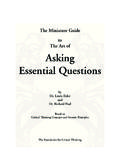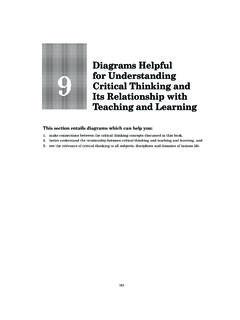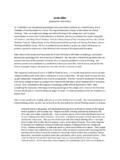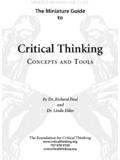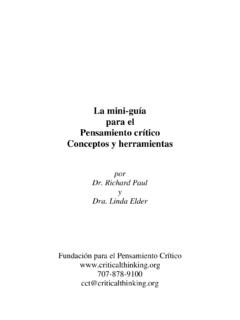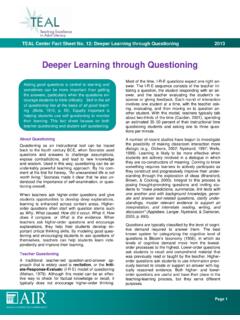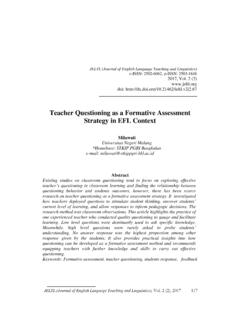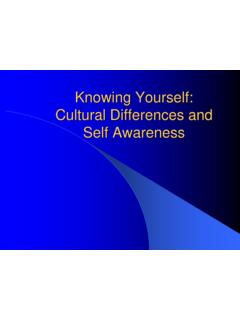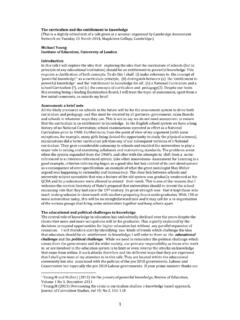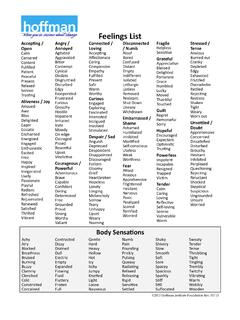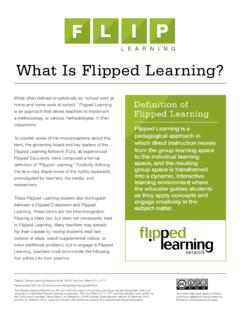Transcription of The Art of Asking Essential Questions
1 2/7/05 12:35 PM Page 1. The Miniature Guide to The Art of Asking Essential Questions by Dr. Linda Elder and Dr. Richard Paul Based on Critical Thinking Concepts and Socratic Principles The Foundation for Critical Thinking 2/7/05 12:35 PM Page 2. The Miniature Guide to the Art of Asking Essential Questions Dear Reader: This miniature guide introduces the art of Asking Essential Questions . It is best used in conjunction with The Miniature Guide to Critical Thinking and The Miniature Guide to How to Study and Learn. The quality of our lives is determined by the quality of our thinking. The quali- ty of our thinking, in turn, is determined by the quality of our Questions , for Questions are the engine, the driving force behind thinking. Without ques - tions, we have nothing to think about.
2 Without Essential Questions , we often fail to focus our thinking on the significant and substantive. When we ask Essential Questions , we deal with what is necessary, rele- vant, and indispensable to a matter at hand. We recognize what is at the heart of the matter. Our thinking is grounded and disciplined. We are ready to learn. We are intellectually able to find our way about. To be successful in life, one needs to ask Essential Questions : Essential Questions when reading, writing, and speaking; when shopping, work- ing, and parenting; when forming friendships, choosing life-partners, and interacting with the mass media and the Internet. Yet few people are masters of the art of Asking Essential Questions . Most have never thought about why some Questions are crucial and others peripheral.
3 Essential Questions are rarely studied in school. They are rarely modeled at home. Most people question according to their psychological associations. Their Questions are haphazard and scattered. Essential Questions fall into a range of categories. Some Essential ques - tions are principally analytic, some principally evaluative. Some apply predominantly to academic subjects, others to our innermost thoughts, feelings, and desires. As you might expect, the categories and lists of Essential Questions in this mini-guide are illustrative, not exhaustive. Furthermore, the ideas we provide are useful only to the extent that they are employed daily to ask Essential Questions . Practice in Asking Essential Questions eventual- ly leads to the habit of Asking Essential Questions .
4 But we can never practice Asking Essential Questions if we have no conception of them. This mini-guide is a starting place for understanding concepts that, when applied, lead to Essential Questions . Sincerely, Richard Paul Linda Elder Center for Critical Thinking Foundation for Critical Thinking 2005 Foundation for Critical Thinking 2/7/05 12:35 PM Page 3. Table of Contents Introduction: The Power of Essential Questions ..3. Part One: Analytic Questions ..5. questioning the Structure of Thinking ..5 8. Asking One System, No System, and Conflicting System Questions ..9. questioning Dogmatic Absolutism and Subjective Relativism ..10. questioning Concepts ..11 12. Conceptual Tools for Conceptual Questions ..13 14. questioning Data, Information, and Experience ..15. questioning Questions : Identifying Prior Questions .
5 16. Asking Complex Interdisciplinary Questions ..17. Interdisciplinary Questions : An Example ..18. questioning in Decision-Making and Problem-Solving ..19 20. Part Two: Evaluative Questions ..21. Determining Value, Merit, and Worth ..21. Evaluating Reasoning (Overall) ..22 23. Evaluating Reasoning (The Parts) ..24. questioning Clarity and Precision ..25. questioning As We Read ..26. questioning As We Write ..27. Asking Ethical Questions ..28 30. questioning Bias and Propaganda ..31. Part Three: questioning Within Academic Disciplines ..32. questioning the Fundamental Logic of Academic Disciplines ..32 33. questioning the Status of Disciplines ..34. questioning to Understand the Foundations of Academic Disciplines .35 37. Essential Questions in Science ..35 36. Essential Questions in the Social Disciplines.
6 36. Essential Questions in the Arts ..36 37. Part Four: questioning for Self-Knowledge and Self-Development ..38. questioning Ourselves as Learners ..38 39. questioning Our Egocentrism ..40 41. questioning Our Sociocentrism ..42. questioning to Develop Intellectual Dispositions ..43 44. Conclusion: questioning Systematically and Socratically ..45 47. Third Edition 2005 Foundation for Critical Thinking 2/7/05 12:35 PM Page 4. 2 The Miniature Guide to the Art of Asking Essential Questions The Quality of Our Thinking is Given in the Quality of Our Questions 2005 Foundation for Critical Thinking 2/7/05 12:35 PM Page 5. The Miniature Guide to the Art of Asking Essential Questions 3. Introduction: The Power of Essential Questions It is not possible to be a good thinker and a poor questioner.
7 Questions define tasks, express problems, and delineate issues. They drive thinking forward. Answers, on the other hand, often signal a full stop in thought. Only when an answer generates further Questions does thought continue as inquiry. A mind with no Questions is a mind that is not intellectually alive. No Questions (asked) equals no understanding (achieved). Superficial Questions equal superficial understanding, unclear Questions equal unclear understanding. If your mind is not actively generating Questions , you are not engaged in substantive learning. Thinking within disciplines is driven, not by answers, but by Essential Questions . Had no basic Questions been asked by those who laid the foundation for a field for example, physics or biology the field would not have been developed in the first place.
8 Every intellectual field is born out of a cluster of Essential Questions that drive the mind to pur- sue particular facts and understandings. Biology was born when some humans pursued answers to the Questions : What are the characteristics of living systems? What structures exist in them? What functions do these structures serve? Biochemistry was born when biologists began to ask Questions such as: What chemical processes underlie living things? How and why do chemical processes within living things interact and change? . Every field stays alive only to the extent that fresh Questions are gener- ated and taken seriously as the driving force in thinking. When a field of study is no longer pursuing significant answers to Essential Questions , it dies as a field. To think through or rethink anything, one must ask the Questions necessary to thinking through the logic of that thing, clearly and precisely.
9 In this miniature guide, we introduce Essential Questions as indispensa- ble intellectual tools. We focus on principles Essential to formulating, analyzing, assessing, and settling primary Questions . You will notice that our categories of question types are not exclusive. There is a great deal of overlap between them. Deciding what category of question to ask at any point in thinking is a matter of judgment. Having a range of powerful Questions to choose from is a matter of knowledge. Because we cannot be skilled at thinking unless we are skilled at ques - tioning, we strive for a state of mind in which Essential Questions become second nature. They are the keys to productive thinking, deep learning, and effective living. 2005 Foundation for Critical Thinking 2/7/05 12:35 PM Page 6.
10 4 The Miniature Guide to the Art of Asking Essential Questions questioning in a live and learning mind never ends Questions become transformed Questions generate more Questions Stimulate new ways to think, new paths to follow as we Analyze Evaluate thinking thinking Improve our thinking 2005 Foundation for Critical Thinking 2/7/05 12:35 PM Page 9. The Miniature Guide to the Art of Asking Essential Questions 7. Analytic Questions Implied by the Elements of Thought 2005 Foundation for Critical Thinking 2/7/05 12:35 PM Page 19. The Miniature Guide to the Art of Asking Essential Questions 17. Asking Complex Interdisciplinary Questions When addressing a complex question covering more than one domain of thought, target prior Questions by formulating Questions according to domain.
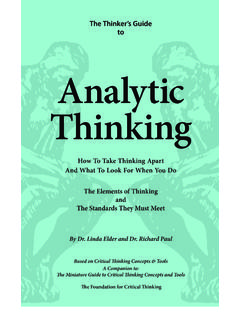
![riChard Paul [ ] - Critical thinking](/cache/preview/4/4/e/4/c/a/a/a/thumb-44e4caaa8aace41cbe216a7e608396cc.jpg)


